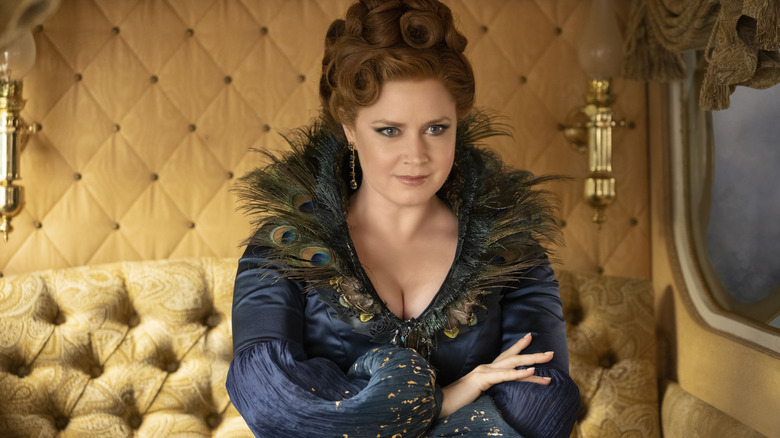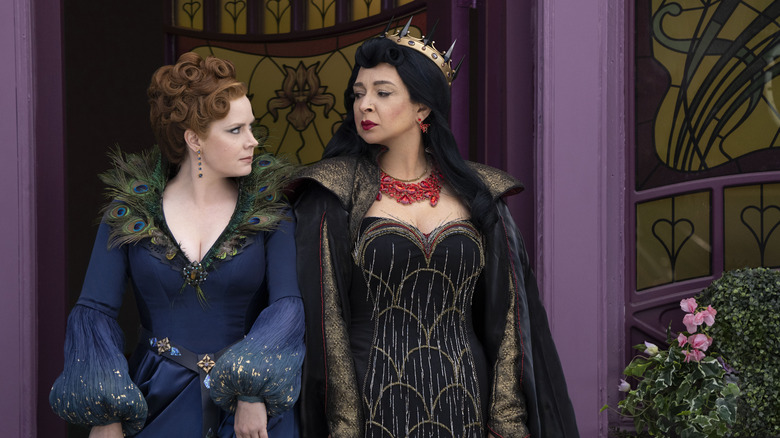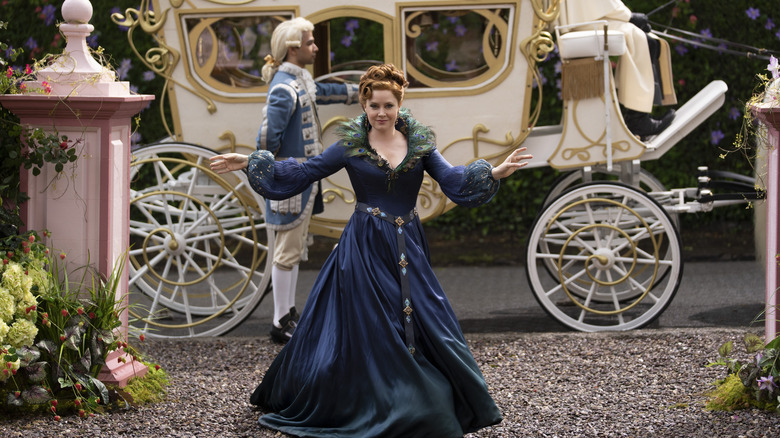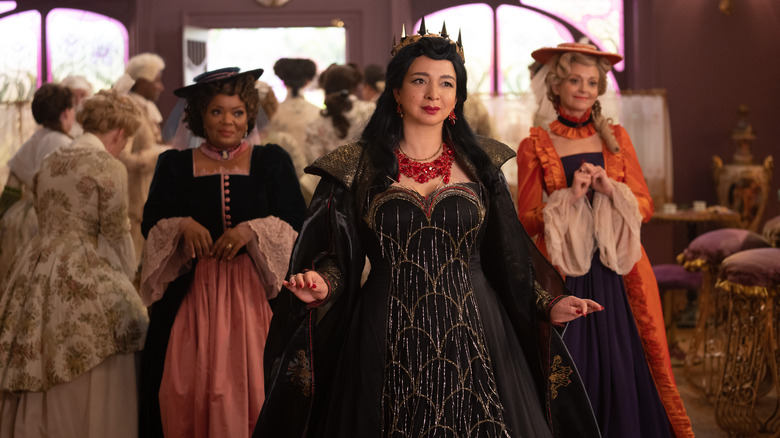
Warning: mild spoilers for Disenchanted lie ahead
It's no secret that a ton of classic Disney villains are pros at coming up with elaborate schemes. After all, it'd be pretty boring if they planned to steal the throne (or the jewels, or some other treasure) via a dry, lengthy legal battle — these are kids' movies, after all. Plus, when a villain's willing to come up with twisted plans, they become all the more threatening.
As is probably best for kids' movies, most of the characters in classic animated Disney flicks can be assessed through a relatively black-and-white sense of morality: Princess Tiana is good because she's hardworking and saves Prince Naveen, Jafar is evil because he's trying to take over Agrabah. But in "Disenchanted" (which we reviewed here), we get something way more interesting: the formerly ever-wholesome Giselle, an archetype of the morally perfect Disney princess, inadvertently puts herself under a fairytale-ification spell. Since she has a stepdaughter, Giselle is morphed into a stereotypical wicked stepmother (a harmful trope, yet one that many classic Disney villains fit into), complete with a newfound knack for evil schemes and a surprising justification for her shady methods.
The True Reason For All The Schemes

As Giselle begins to embrace her new dark side, she sets her sights on a major new ambition (which I won't reveal due to spoilers). In typical wicked Disney stepmother fashion, she starts to come up with elaborate plans to achieve it, too — but this time, the evil stepmother offers a rare explanation for her schemes:
"You know, stepmothers are many things. But one of the things we are not is powerful. That's why we have to go through all of these ridiculous manipulations. We have no power of our own."
Now, Giselle's not being entirely truthful here. She personally has on-and-off access to a level of magic that no one in her new fairy-tale kingdom can rival. Likewise, the wicked stepmothers in "Enchanted" and "Snow White" were both queens, and even if the black-and-white morality rules kept them from outwardly using their position to eliminate anyone they disliked (after all, these are Disney movies — it doesn't look great if the sympathetic royal citizens tolerate an openly bloodthirsty queen), it isn't exactly fair to say that they lack power, either.
Just A Parody, Or Something More Heartfelt?

Given the fact that so many of Disney's wicked stepmothers have in fact been powerful, it's tempting to write off Giselle's declaration as nothing but a villain's ramblings. But considering that the "Enchanted" movies have always prided themselves on poking fun at beloved Disney tropes, there might be a little bit more to the Andalesian native's claim than meets the eye.
In "Enchanted," Giselle started off as a naive young woman who lived in a fantasyland that catered to her every desire — her life was so ideal that she couldn't even imagine mistrusting anyone. When she was thrust into not-so-sunny New York City, she still had two Prince Charming-type love interests who were determined to protect her. Sure, one of them might've been a little more grumpy, but he was still willing to shelter her from the real world's harshness. Giselle even managed to keep most of her chipper attitude after spending ten years in New York City (and trying to parent a teenager). But there's only so much that the perfectly cheery Disney heroine can really accomplish on her own.
Giselle might be resilient, but she's very frequently reliant on the men around her, too. While the dynamic works for the most part (for example, there's certainly nothing wrong with her being a housewife), it's easy to see why she'd be scared when her husband suddenly struggles to say that he's happy with life — or when her beloved stepdaughter starts to push back against her. Change can be scary, especially when it comes with your very first realization that you're powerless to fix things.
Taking Things Into Their Own Hands

In true "Disenchanted" fashion, Giselle and Robert's marriage dynamic has its roots in countless Disney films before it — in fact, Giselle's relative dependency on Robert almost seems watered down in comparison to some of the source material. How many of the Disney queens seemed to have their own sense of agency, especially in the older movies? The majority of the princesses are better role models, but let's be honest — the original animated movies didn't exactly suggest that Snow White and Aurora would enjoy a whole lot of independence, either.
In light of all the Disney films that "Disenchanted" references, it's possible that Giselle misspoke. Maybe it isn't that the stepmothers have to resort to scheming due to their lack of power, but rather that a lot of classical Disney women, regardless of their hypothetical stepmotherhood (or lack thereof), just haven't had many avenues to carry out their own plans. This has never really been an issue for the good characters; the plot will bring them whatever they want. But for the bad characters, evil schemes are a convenient means to an end.
Read this next: The 50 Best Documentaries You Can Watch On Netflix Right Now (November 2022)
The post Disenchanted Goes a Long Way to Explaining Why Disney Villains Act Like They Do appeared first on /Film.
0 Comments